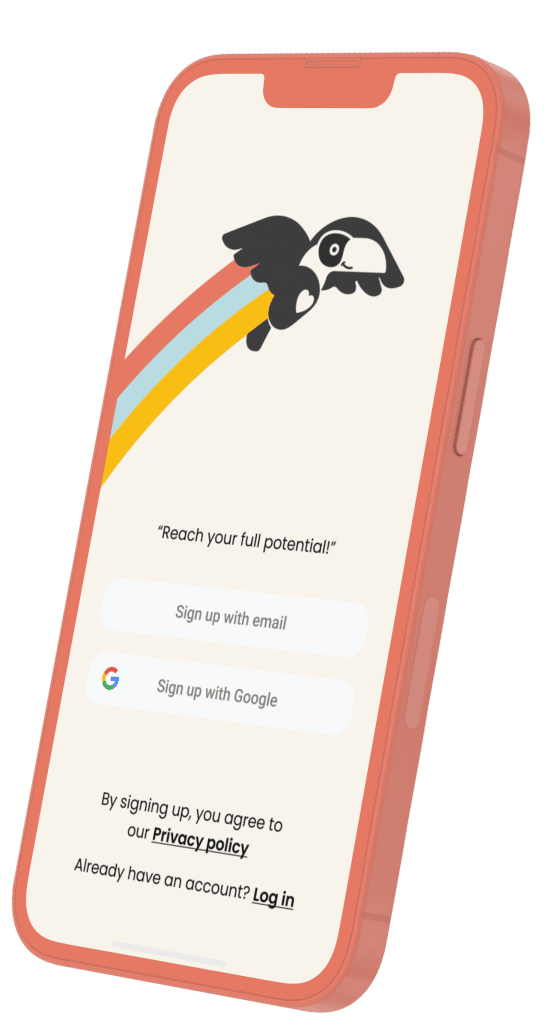Let’s admit it: writing a CV is hard. That’s why there are so many amazing CV builders for you, that can give you great design inspiration for how your CV should look like, especially for the startup world. These software can do a lot of magic, but they cannot fill out information for you. You have to come up with how to add your language skills or what kind of personal statement you want to include.
What interest to put on your CV is one of these troubles. In this article we give you a comprehensive guide for what are interests on a CV, why do you even need to put interests on your CV, what interests and hobbies to include and not to include.
What are interests on a CV?
Interests are all about exploration and learning about new things. They are less tangible, and more umbrella terms like history, music culture, healthy lifestyle, nature, etc.
If you mention interests that you truly associate yourself with, you can spark a very informal conversation with the interviewer. Simply being passionate about something is a very important factor for the startup world, and the interviewer can see that if you like the projects you work on, you’ll get passionate about them too.
What’s the difference between hobbies and interests?
Hobbies stem from interests. Let me explain: If your interest is history, then your hobby is going to museums, reading books about important people in history or listening to podcasts about history. See the difference? Hobbies are more tangible, and you can actually do them in your free time (you cannot simply do history in your free time).
Recruiters will first and foremost look at your professional history, projects you worked on and hard skills you gained along the way. So, at the end of the day, should you add interests to your CV?
Should I put interest on my CV?
Are hobbies and interests important on a CV? First of all, it’s all dependent on where you’re applying for: corporate or startup. Up to now in the corporate environment, including your interests seemed useless and sometimes even unprofessional. But trends are moving, the personal touch has become more important, therefore corporates are also starting to shift their view on this and see the value behind including interests on your CV.
When you apply to startups, there can be many benefits if you include your hobbies. Such as the points below:
Interests show your personality
When you think about applying for a startup, including your interests can help you in many ways. It helps you to stand out from the crowd: if there’s a particularly specific interest you have, there is a chance that the recruiter will remember you better.
It also shows more about your personality, which is very important in the startup environment. There are specific personality traits that are scientifically proven to help in a successful startup career, like high activity level or flexibility. If you include interests that can reflect that, it will give the recruiter an additional booster, that you are the right person for the job.
Interests help you connect
It’s also easier for the recruiter to connect with you if they already see something personal from you. Interests can be great informal conversation starters, so you’re actually helping the recruiter to find the best tone for the interview.
Are you a cultural fit?
Startups are no longer looking for people who just fill out meaningless excel files the whole day. Corporate culture plays a very important role, and companies want to see that the person they hire, can actually fit into this culture. That’s why interests help you – it shows a piece of who you are as a person.
Research the company
If you really want to ramp up your game, you must research the company you’re applying for. Wait, shouldn’t you always do that?! Yes, you should, but what makes the difference is to include interests that align with their company culture.
Where can you get a hint about a company’s corporate culture?
- On their social media accounts you can see events they are organizing, projects they work on or even charities they are involved in. This can then show you if you have any similar alignments to your own hobbies. If yes, great – include those hobbies!
- Check out their website’s “About Us” page. Are they emphasizing what an active and open-minded company they are? Then if you like getting to know other cultures, you’re good to go.
- Also, don’t forget the most obvious piece of information you have about the company – the job ad. The company will specify what kind of person they are looking for. If they mention a proactive go-getter, collecting stamps might not be the best hobby to include.
How to put interests on your CV
Interests & hobbies are always at the end of your CV, as including them is not a must, but they’re nice-to-have elements. They are not as important as your work experience, your hard skills or language skills, but for the reasons mentioned above, you should still give a dedicated space for them.
Depending on your CV structure, leave a column or an additional row for “Interests”, “Hobbies” or “Interests & Hobbies”.
As opposed to what many say, there’s not really a concrete number of interests. A good rule of thumb is to include 3-5 hobbies, but if you have more or less concrete (!) interests that are true for you, don’t be afraid to adjust this number.
A good thing to keep in mind is to be genuine about your interests, it’s for people to see what you like besides your career. Do not focus on putting professional interests examples as hobbies or interests in your CV, be authentically you!
Source: Beam Jobs
Mistakes about interests on CV
Your CV, next to your cover letter, is your time to shine! But you can also make mistakes that you will later regret – that’s why it’s better you prepare earlier than later.
Don’t be generic
According to Elma Musa, our People Manager, one of the mistakes many people do is that they’re being very generic and they don’t specify their hobbies.
“Many times when I look at the CVs of the candidates, the interests are always the same – reading a book, singing, or travelling”.
Instead, we advise you to add something more exact. If you like reading books, specify: novellas, non-fiction, historic, detective? Or, you can easily replace “travelling” with “getting to know new cultures”. As you see, you can always add a little twist that will tell the recruiter so much more about your personality, and it will be easier to remember you. If you don’t just like sports but played (professionally), include with a couple of words what you did exactly. If you were a captain, for example, the skills you probably gained there can be very well translated into the workplace.
Unrelated interests
Also, try to think about interests that can relate to working somehow. If you’re a UX/UI designer, it’s a plus if you like artistic events.
Also, think about the position you’re applying for: if it’s an internship or junior position, interests like dancing or singing can be a great fit. But if you’re applying for a senior position, interests like history or amateur astronomy fit better.
Don’t lie
With all this being said, the most important thing is don’t lie. Lying is always a no-go, especially about your interests. Imagine the following scenario as examples:
- You put on your CV that you play chess because you hope it will show you’re smart
- Your interviewer sees that, and starts a conversation as she was playing chess all of her high school years. She thinks it will be a great conversation starter and will help to make you feel comfortable during the interview.
- Instead, your palms are getting sweaty and one lie brings more lies since you have no clue about chess. Awkward, right?
- When the interviewer sees your reaction, she can draw two conclusions. You either lied or you’re not passionate about one of your top interests. “How will this person then be passionate during the projects we will give her?” She asks. Not much of a plus point there.
You cannot say some interests are cooler than others. Simply be yourself.
Examples of what interests or hobbies to put on CV
| Interest / Hobby | What it can be translated to |
| Charity | You like to help others and work towards a bigger aim. This is especially important from the vision & mission perspective. |
| Individual Sports | If you swim, run or bicycle a lot, it can mean that you’re determined and has a long-term approach as you care for your health |
| Team Sports | Played in a basketball or football team? It shows that you’re a team player and determined |
| Reading Books | You’re open-minded and always like to learn something new |
| Reading (Professional) Magazines | You like to keep up with the latest developments of the industries around you |
| Watching Documentaries | You’re interested in what happened in the past and evaluate casual consequences |
| Blogging | You’re a creative person, has a technical mind and good communication skills |
| Mentoring | You care for others and can explain your thoughts in a consistent way |
| Visiting Museums | You’re a visual person and interested in learning more about your surroundings |
| Community Building/ networking | You’re organized and like to involve yourself with team events (=extrovert) |
| Solving Puzzles | You have an analytical mind and you are patient |
| Gardening | You’re a responsible person and like to take care of other beings |
| Writing | You know how to express yourself |
| DIY Projects | You’re a doer and not afraid to take matters into your hands |
| Playing on Instrument | You’re persistent and motivated |
| Photography | You appreciate the details and can capture them |
| Learning new skills | You’re open to develop yourself and help others around you with your newly acquired knowledge |
| Travelling / Exploring | You’re an active and adventurous person, who can adapt fast to changing environment |
No-go interests
There are certain interests and hobbies you should definitely avoid.
Politics, for example, can be a very fragile topic in an organization and people can easily isolate themselves from others who don’t have the same political views. That’s why politics is usually off-topic in an organization.
Same about religion: those are simply topics they’re better kept to yourself.
Conclusion
As you can see, there are a couple of things to consider when you add your interests to your CV. Always look at the position and the company itself and try to sense which interests would suit you best. Of course, always stay true to yourself and choose something that is really applicable to you. And when you find these skills, evaluate how they can be translated in the mind of the recruiter. Easy-peasy – and now, go get your dream job!


